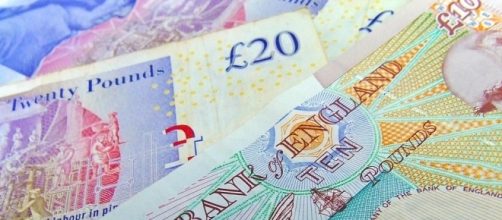These are exciting, but scary, times. Regardless of how one feels about the consequences of Brexit, the markets are panicking due to EU posturing over the outcome on June 23rd. But Chancellor Philip Hammond missed a golden opportunity to cut taxes further; it seemed like boldness was vacant in yesterday's Autumn Statement.
Do you want the good news?
Nonetheless, despite its downbeat tone, there was much to be positive about. In 2017, fuel duty will be frozen for the seventh consecutive year. This will save drivers £130 a year, a welcome tax break when people still feel their incomes are being squeezed.
Hammond will maintain Osborne's pledge of increasing the personal allowance to £12,500 and the higher threshold to £50,000 by 2020-21. Tax cuts inevitably provide an increased number of people with more purchasing power, so these measures are refreshing.
Britain is an attractive place to do business, and the outcome of the Brexit vote should not alter that. That is why the Chancellor was right to cut corporation tax to a level of 17% by 2020, by far the lowest in the G20. This will benefit 1 million businesses.
Yet there were some stealth taxes contained in yesterday's Autumn Statement. From April 2017, salary sacrifice schemes will be subject to the same tax as cash income. In these schemes, employees exchange some of their salary for a non-cash benefit in kind (e.g.
a mobile phone). Both the employer and employee generate a tax saving because the benefit is taxed less than the latter's salary, or not at all. The loss of these perks will fail penetrate new talent when businesses are searching for it.
And now the bad news
But in a climate where Brexit is being blamed for Britain's economic woes, causing businesses to wobble on their investment plans, why is it that Hammond failed to announce some radical economic policies during the Autumn Statement yesterday? Surely businesses need continued reassurance and incentives to invest in Britain? Why didn't the Chancellor initiate more tax cuts at a time when, even under a Conservative government, certain taxes are still too high?
Manufacturing should be expanding, yet there were no tax incentives for manufacturers to invest in new equipment to allow them to increase productivity. Many shops have vanished on high streets across the country. Hammond could have used yesterday's Autumn Statement to revisit the business rates system to encourage retailers not to retreat from Britain's towns and cities.
This is a time when infrastructure and innovation should be leading the way, but without the education needed to expand people's skills and knowledge, this will not culminate in significant improvements to Britain's facilities.
Air passenger duty proceeds with punishing passengers. Abolishing this tax is likely to boost UK GDP by 0.45% and add £16 billion to the economy.
It would also create 60,000 new jobs.
Whilst there were many welcome policies yesterday, Hammond has missed an ideal moment to pursue some brave tax cuts necessary in an uncertain climate. It is no secret that this would boost productivity. Let's just hope the Chancellor realises this by March.

